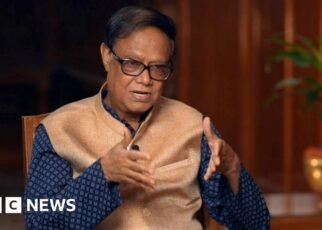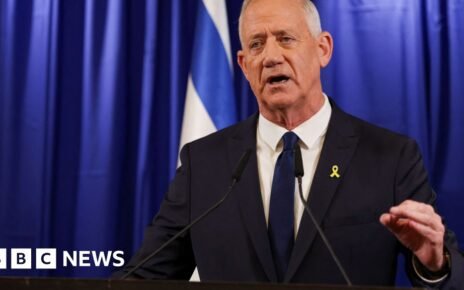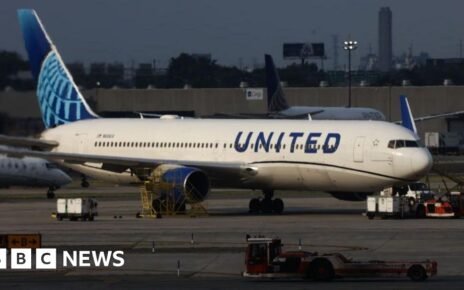[ad_1]
Bangladesh will announce a decision to raise interest rates from 8.5% to 9% in a day or two, the new central bank chief has told the BBC in an exclusive interview.
Dr Ahsan H Mansur said he will raise rates further to 10% or more in the coming months to tame inflation.
Soaring prices have been a major concern for Bangladesh, with its currency also under pressure with remittances drying up and garments exports badly impacted by political unrest.
The International Monetary Fund (IMF) had asked Bangladesh to tighten its monetary policy and keep exchange rates flexible while extending a $4.7bn (£3.6bn) bailout for the South Asian nation.
Dr Mansur said he was in conversation with the body to “augment” and “front load” this amount by an additional $3bn.
He said Bangladesh was also seeking an additional $1.5bn from the World Bank and $1bn each from the Asian Development Bank and the Japan International Cooperation Agency.
Internet blackouts and curfews preceding the ousting of Prime Minister Sheikh Hasina’s regime earlier this month have also put pressure on prices.
Dr Mansur, a veteran economist who spent three decades at the IMF, was named governor of Bangladesh Bank last week by the interim government headed by Nobel laureate Muhammad Yunus.
The former Governor Abdur Rouf Talukder and two other deputy governors resigned as part of string of bureaucratic departures following the recent fall of the previous government.
In his first sit-down interview since, Dr Mansur emphasised that cleaning up the country’s banking sector was his top priority when speaking to the BBC at the central bank’s headquarters in the commercial heart of Dhaka.
There has been a “designed robbery of the financial system” which has caused significant damage to banks and has serious implications for the stock market and the broader economy, he suggested.
Bangladesh’s banks have seen a flight of deposits and an alarming rise in non-performing assets following defaults by groups allegedly linked with the ousted Awami League government.
The non-performing assets were “just robbery of the banks. They took the money and put it in Singapore, Dubai, London and elsewhere. So the first effort would be to try to take people to task and get the money back,” said Dr Mansur.
“While doing this in parallel, we will have to reconstruct the banking system. So we are trying to establish a Banking Commission.”
The job of this commission will be to do a comprehensive audit of the banks and suggest remedies such as change of board, change of management, injection of capital, or in the case of some smaller banks, mergers.
Dr Mansur also expects the government will need to inject $15-30bn to recapitalise some of Bangladesh’s Islamic banks which could effectively mean they will be nationalised.
“We do not want it.. but [a] lot of loans have been incurred by these people, and they are not going to pay it back… We have to at least cover the depositors’ money,” he added.
Along with reforms in monetary policy, the governor also expects Bangladesh’s new government to announce a sharp reduction in spending despite the ongoing economic turmoil.
Prime Minister Sheikh Hasina’s government had cut spending and lowered the country’s fiscal deficit target to 4.6% – the lowest since 2015, according to Bloomberg.
But there will need to be a further 9-10% cut in budgetary spending “so that more credit is more available for the private sector”, said Dr Mansur.
Late last week, Muhammad Yunus, the Chief Adviser to Bangladesh’s interim government, is reported to have told a gathering of diplomats that his government will undertake “comprehensive reforms” before holding the next general election.
When asked how long it will be before the elections could be called, Dr Mansur said it could be another three years or more.
[ad_2]
Source link



